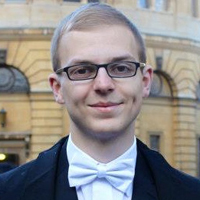George Zimmerman walked free last night. He walked free and black America seethes. It seethes because 50 years after the end of Jim Crow, and more than 150 years after emancipation, black people find themselves, yet again, powerless to ensure that justice is upheld for their children.
Trayvon Martin was not merely one black child. He could have been any black child. He could even have been the son of the president of the United States.
But that fact was not enough to spare his life, nor was it enough to bring his killer to justice. Instead, black America watched as the man, who shot one of their defenseless black sons at point-blank range, walked out the courthouse doors to freedom.
In a criminal-justice system believed to particularly target young black men—black inmates account for approximately 40 percent of the total prison population—Zimmerman’s freedom is a cruel joke. It reinforces the notion that although the system may be colorblind, the attainment of justice often seems to be structurally biased against black Americans. The trial highlighted just how fragile and exclusionary the position of African-Americans in American society continues to be.
The cold-blooded murder of a young boy should be a collective moment of reckoning for our society. The outrage and anger should have been colorblind. Instead, the outrage and anger was defined by the color line. The trial was framed, defined, and determined by the race of both the victim and the defendant.

In the end, therefore, this case was not only about the events of the tragic night that left Trayvon dead. It was not merely about whether or not Zimmerman was guilty. This case was symbolic of the lives of too many black youths stained red with calamity. It was about the passive indifference of a nation that seems content to allow these daily calamities to persist.
The structural racism that exists in the criminal-justice system is reflected across almost every sector of American society. According to current trends in the United States, a black boy born tomorrow is six times more likely to be murdered than a white boy. That same black boy is seven times more likely to be imprisoned in his lifetime than a white boy. He is also more than twice as likely to be born into poverty.
So for many black parents, as they watch their child leave home for school in the mornings, it’s often not certain that their children will return. Or if they do come home, whether or not their children will have the opportunities to lead free and full lives. Their best efforts to make their children safe and prosperous often seem to fail. As a result, too many black parents—like Trayvon’s parents—feel a sense of desperation but also growing indignation.
The shooting and its aftermath, particularly the achingly slow response of the authorities in Florida to prosecute Zimmerman, compounded these feelings by once more exposing the powerlessness of the black community. Worse, the empathy deficit in much of America to Trayvon’s death has aggravated festering sores of racial division. There seems to be a common disregard in much of American society and culture to the plight of black Americans who are now faced with another in a long chain of daily injustices.
The temptation is to dismiss this sense of injustice as merely the immediate reaction to the outcome of the Zimmerman trial. To view black America’s legitimate claims to anger as isolated to this singular, non-generalizable incident. Instead, it is time for the wider American society to accept some responsibility for the injustice that occurred yesterday.
The tendency in America, when faced with these contemporary hard truths, has been to rationalize the continued suffering of black America. A tendency to emphasize symbolic progress such as the election of the first black president. The reality is that Trayvon had been abandoned long before the shooting took place by a society and a government that refuses to adequately protect children of color. Before the trial anti-black prejudice may not have been spilling out of our TV sets into the lives of the rest of us, the injustice has always been there. Black parents understand this harsh reality and today they are reminded all too well that the corridors of justice and power are still structured against them.
What is demanded in this moment is for all of America to bear witness to the injustice that has occurred and to cultivate an ethic of common care. Trayvon’s family will never be made whole again, but if we care more for each other in America other families can be saved the agonizing pain of losing a child. For now, black America seethes, and rightly so. Zimmerman walks free. But perhaps if we stubbornly dedicate ourselves to righting just some of the many wrongs that were biased against Trayvon from the start, we may ensure that a black child born tomorrow may have a better, more just future.






